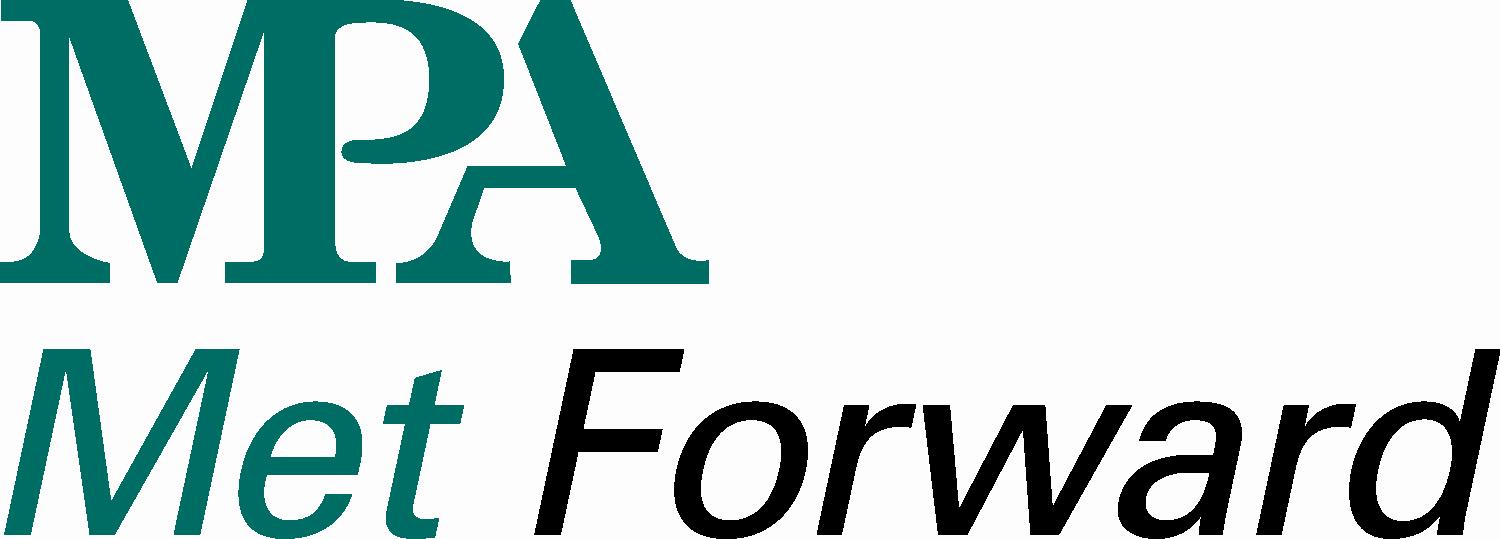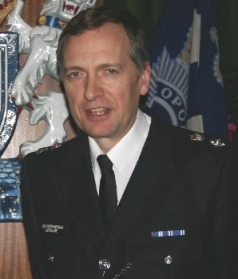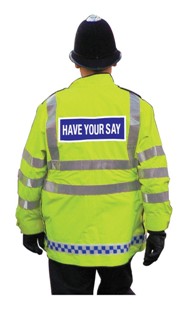Contents
This section contains the Kingston Local policing summary for 2009-10.
Warning: This is archived material and may be out of date. The Metropolitan Police Authority has been replaced by the Mayor's Office for Policing and Crime (MOPC).
See the MOPC website for further information.
Local Policing Summary: Kingston upon Thames 2009-10
A message from Kit Malthouse
 When Boris was elected he
promised to refocus the MPA and the Met on fighting crime. Our strategic plan, Met Forward, has done just that, and London has become safer as a result.
When Boris was elected he
promised to refocus the MPA and the Met on fighting crime. Our strategic plan, Met Forward, has done just that, and London has become safer as a result.
Overall crime has fallen by 100,000 offences over the last two years, reductions have been made in violence and murder, and serious acquisitive crime, which includes robbery, has fallen to the lowest levels in ten years.
But it doesn’t yet feel better on London’s streets. The capital still has serious problems, particularly knife crime. While the number of teenage killings have fallen, there are still too many young people dying or being injured. Each event is a shocking reminder of the mountain we still have to climb.
But there is a huge amount of effort now being brought to bear on these problems. We are making progress and Londoners are responding with increased confidence in local policing and more people feeling safe in their own neighbourhood.
So this policing summary is designed to give you a snapshot of how your local cops are doing and help you make up your own mind. If you have any issues you would like to raise please do let me know by writing or emailing kit.malthouse@london.gov.uk
There is much still to be done, and because of the economic climate the year ahead will be tough. We will need to work smarter, more efficiently and in closer partnership if we are to reduce crime yet further. With your help and support I know we can have an even better year.
You have my commitment that we will strain every sinew in the pursuit of your safety and that of all Londoners.
Kit Malthouse
Deputy Mayor for Policing and Chair of the Metropolitan Police Authority
Met Forward: the MPA strategic mission

The key purpose of Met Forward is to provide clear direction and support the Met as it works to make London a safer city. Many priorities set out in Met Forward are based on what communities have told us and will ensure that victim care and customer satisfaction are at the core of our shared values.
Above all, increasing the public’s confidence in policing is a key priority for Met Forward, working to ensure Londoners feel confident and safe in their neighbourhoods and shared public spaces. Met Forward reflects Londoners’ concerns for policing and sets out our ambition to provide strong leadership, open and transparent accountability and effective working with partners and the community.
Making people feel safe is not just down to the Met; many others, including the public, contribute to an atmosphere of order and security and we must work together to deliver success.
Since Boris Johnson became Mayor of London there has been renewed action to tackle crime priorities, focussing on knife crime, safety on public transport, removing dangerous dogs from our streets and tackling gangs and violence in town centres. The MPA has also introduced crime mapping to inform local communities of what is actually happening in their neighbourhoods and overseen changes in leadership at New Scotland Yard to inject new vigour into the Met. Met Forward encapsulates all this work and more, reflecting our goal to make sure the police fight crime effectively.
It is hoped that if we get this right, people who live, work and visit London will:
- understand there is less crime and criminality;
- feel more confident about policing in London; and
- recognise that money is being well spent.
These outcomes might seem obvious at first sight, but they often become lost in the day-to-day activity of running our police force and reacting to events. Constantly reminding ourselves about the objectives of our collective mission will help us focus on what is important. Everything that we do must be directed to these three objectives.
To find out more visit www.mpa.gov.uk/publications/metforward
The MPA’s work
Policing London Business Plan 2010/2013
The MPA sets the three year business plan that determines out how the MPS will deliver against the policing priorities of the government, the Mayor of London and the people who live and work in the capital. Targets are set and monitored throughout the year to ensure the MPS continues to reduce crime and increase public safety.
The strategic priorities in the plan are to:
- convince communities we are on their side
- reduce crime and catch criminals
- crack down on violence
- deliver security on the streets
- the right service at the right price
For more information please visit www.mpa.gov.uk/publications/policingplans
The MPA and MPS carry out a great deal of community engagement work at ward, borough and pan-London level. When developing and assessing our community engagement work we must ensure it remains relevant to Londoners, so we have recently produced a joint ‘Community Engagement Commitment’ which explains how we will improve the way we listen to and respond to the needs of Londoners.
For further information on our ‘Community Engagement Commitment’ please contact review@mpa.gov.uk or call 020 7202 0202.
Looking back on 2009/10
The MPS has achieved a number of successes against the objectives and targets set for 2009/10.
Summary performance achievements
Some of the performance achievements between April 2009 and March 2010:
- a reduction in serious acquisitive crime (residential burglary, robbery and motor vehicle crime) of 3.5% or 6919 fewer crimes, exceeding the 2.5% reduction target;
- public confidence across the MPS was 53.1% against a 51.4 % target;
- a reduction in theft from motor vehicle crime of 7.9% or 6195 fewer crimes, exceeding the 2.5% reduction target.
However, some targets were not met, most notably:
- a target to reduce gun crime by 4.2%: there were 429 more crimes, a 14.2% increase;
- a target to reduce serious youth violence by 4.7%: there were 105 more crimes, a 1.6% increase;
- the gap between the satisfaction of White victims (78.8%) and Black and Minority Ethnic victims (73.9%) was 4.9 percentage points: this missed the target of a 3.8 percentage point gap.
Kingston: local information

Here in Kingston we have seen some notable successes over the last 12 months: there have been 267 fewer victims of crime compared to the same period last year, theft from motor vehicles is down 22.1% and theft of motor vehicles has reduced by 37.3%, while we have also seen a decrease of 10.5% in most serious violence offences across the borough. For these achievements I am immensely proud of the hard work and effort put in by my staff and those of the wider partnership in Kingston.
We have had some real challenges this year with burglary, and in response have placed a determined focus on this crime type which will continue throughout 2010 with renewed vigour. This way we intend to target offenders, give better protection to victims and work to design out opportunities for this most upsetting type of crime to happen.
We have also focused this year on responding more quickly to emergency calls for help and ensuring a more timely appointment based response for less serious requests from the public. Our performance is improving too for victims of crime, satisfaction rates with the steps we are taking have increased, which in turn is helping to promote greater confidence in our policing response. Working with our partners we aim to make Kingston a safer borough for everyone.
Kingston: local police initiatives
There have been a number of notable successes for Kingston in the last year, but the receipt of a Green Flag from the Audit Commission and a Purple Flag from the Association of Town Centre Managers (an award supported by the Home Office) for the work in and around Kingston town centre have been two significant results. The Audit Commission use green flags to highlight exceptional performance in improving the safety of town centres during the night time.
In partnership with the local authority, Kingston’s first town centre management team and many other local partners, the borough was praised for using an innovative and coordinated response to tackling numerous issues of concern. Initiatives highlighted included: 'Behave or be banned' promoting responsible venue management through the 'Best bar none' scheme; knife screening in nightclubs; Street Pastors; and moves to improve the transport infrastructure, such as more night buses and taxi marshalling to get people home safely after a night out.
With enhancements to CCTV and other improvements to the cleanliness of the high street environment, crime - and more importantly violent crime - has reduced significantly over the last few years. Kingston is a safer and more attractive town centre as a result, with millions more visitors every year, which is good for the local economy and for the confidence of local residents who now feel safer and more secure when walking through the town.
How did Kingston perform during 2009/10?
| Offence | Up or down? | Change in number of recorded offences | Percentage change in number of recorded offences | Target |
|---|---|---|---|---|
| Residential burglary | 36 | +5.9% | Target missed | |
| Total robbery | 7 | –2.6% | Target missed | |
| Theft from vehicles | 186 | –22.1% | Target achieved | |
| Theft or taking of vehicles | 113 | –37.3% | Target achieved | |
| Serious youth violence | 25 | -19.7 % | Target achieved | |
| Knife crime | 21 | –15.3% | Target achieved | |
| Gun crime | 5 | +29.4% | Target missed |
Looking forward
Borough priorities are set through consultation with the public (Safer Neighbourhoods events, ‘Have your say’ public survey), the police, and other agencies involved in crime reduction in your area.
Priorities for 2010/11
- 4.5% reduction in serious acquisitive crime
- 2.0% reduction in most serious violence, 1.0% reduction in serious youth violence
- 3.5% reduction in gun crime, 1.0% reduction in knife crime
- challenging targets for sanction detection rates across specific crime types
Have your say on policing in London
 How you can help to set London’s policing priorities
How you can help to set London’s policing priorities
Public consultation plays an important part in setting the annual policing priorities for London and we want to encourage more and more Londoners to participate. All organisations do best when they listen to the people they serve and the police are no different.
Participating in this annual consultation is a vital tool to help restore the vital link between our local communities and their police service.
Have your say on policing in London by logging on to the MPA website: www.mpa.gov.uk/publications/policingplans/haveyoursay
This year we also want to hear from more members of London’s business communities. If you own or work in a business in London please log on to: www.mpa.gov.uk/publications/policingplans/haveyoursay-businesses
Alternatively, please call 020 7202 0063 to receive a paper version or to participate in a telephone questionnaire.
Partnership working: CPEGs
Help us to understand the community’s views on policing in your area
The MPA has a duty to consult and engage with London’s communities and give a voice to local people on policing priorities, their concerns and the future direction of the Met. To facilitate this, Community Police Engagement Groups (CPEGs) - in some areas known as Community Safety Boards or Community Police Consultative Groups - exist in each borough.
The primary aims of CPEGs are to consult with local police, Safer Neighbourhoods Panels, the MPA and key stakeholders in Community Safety Partnerships about strategic policing. This can include consultation on developing the annual policing plan, the implementation of neighbourhood policing, and crime and disorder reduction. Their activities also include active community engagement in neighbourhoods and with local groups.
CPEGs are intended to be representative of the local population and we would particularly like to encourage greater representation from across the diverse range of black and minority ethnic communities, young people, the disabled community and from local businesses and chambers of commerce.
If you would like to get your voice heard, get involved in your local CPEG. Visit our website for more information at www.mpa.gov.uk/partnerships
Useful contacts
Metropolitan Police Authority
Tel: 020 7202 0202
Minicom. 020 7202 0173
www.mpa.gov.uk
Metropolitan Police Service
Kingston upon Thames police stations
Tel: 0300 123 1212
www.met.police.uk/kingston
Safer Neighbourhoods info
www.met.police.uk/saferneighbourhoods
Victim Support
Tel: 0845 303 0900
www.victimsupport.org.uk
Crimestoppers
Tel: 0800 555111
www.crimestoppers-uk.org
Talk to Frank (Drug abuse helpline)
Tel: 0800 776 600
www.talktoFRANK.com
Anti-Social Behaviour Actionline
Tel: 0845 605 2222
National Domestic Violence helpline
Tel: 0808 200 0247
www.nationaldomesticviolencehelpline.org.uk
In an emergency always dial 999
Non-emergency dial 0300 123 1212
Alternate formats
This is also available as a PDF document [PDF]
Send an e-mail linking to this page
Feedback